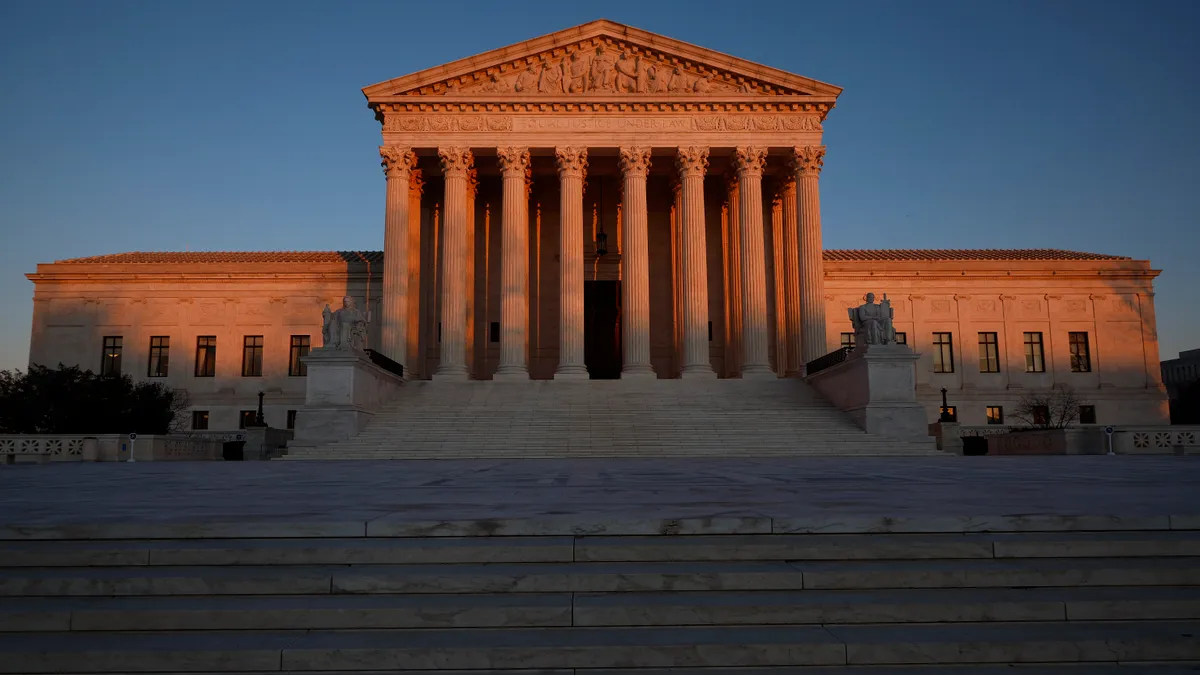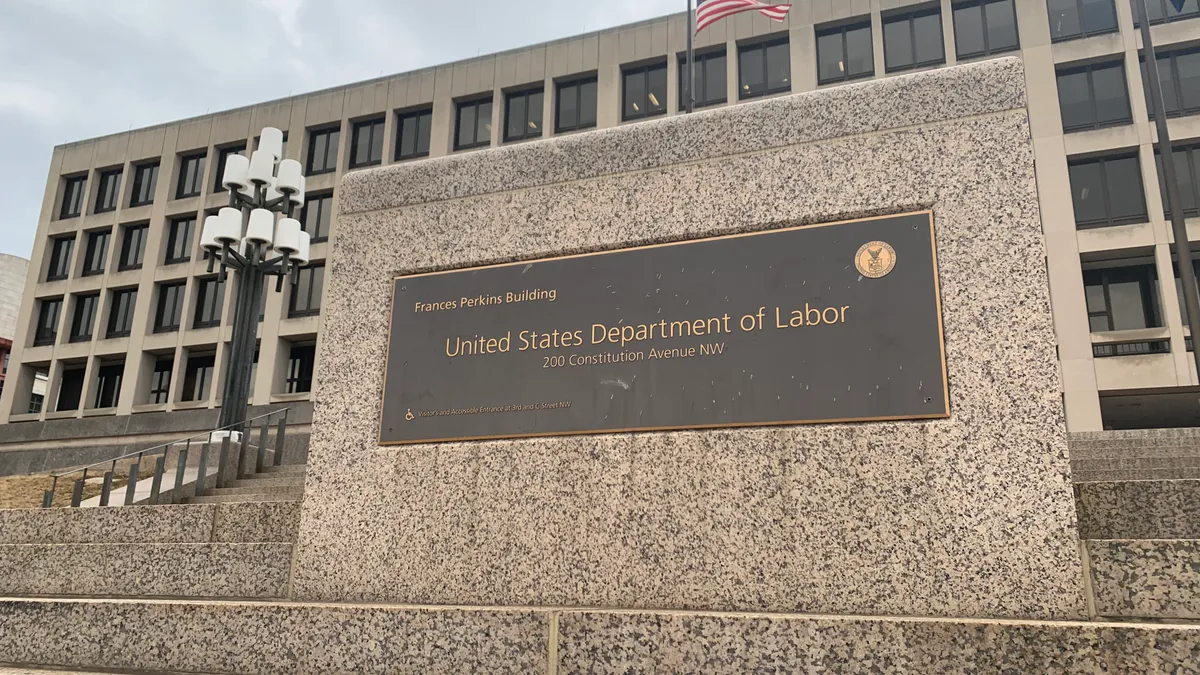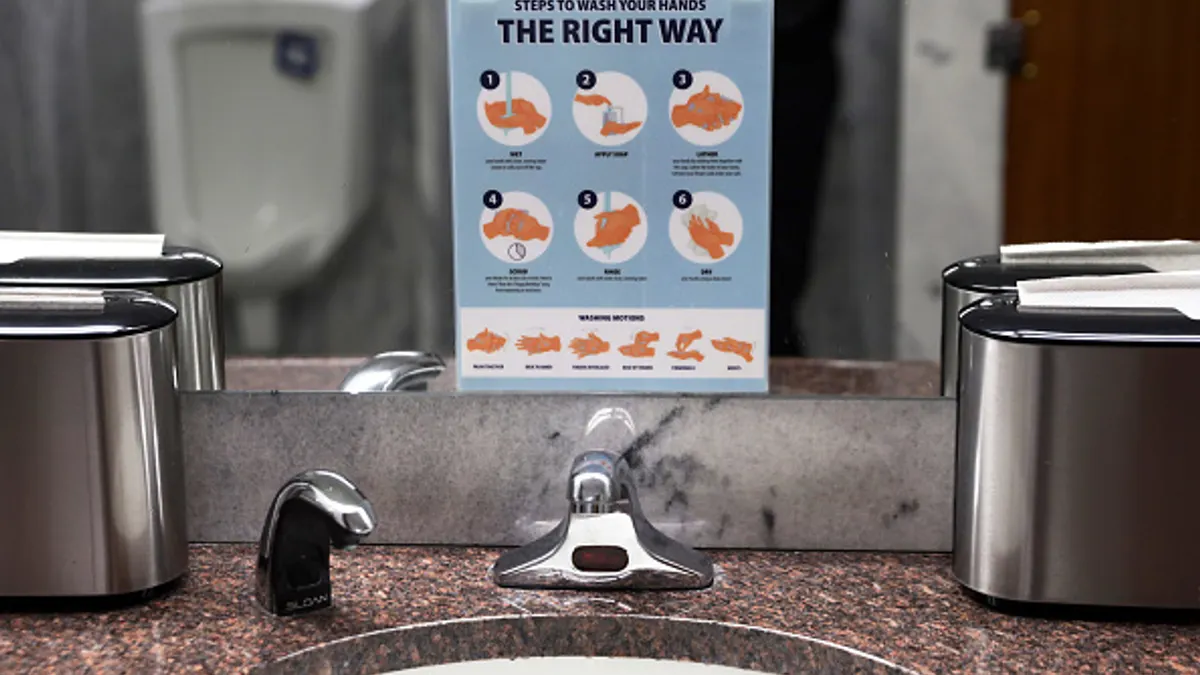The U.S. Supreme Court has handed down a string of consequential employment law rulings in recent years, from its 2020 decision on LGBTQ+ discrimination in Bostock v. Clayton County, Ga., to last session’s ruling on evidentiary standards in overtime pay disputes.
The justices have several opportunities to weigh in on employment and workplace issues with the start of this year’s new term. The court granted certiorari in just two such cases as of the first week of October, but many relevant petitions await its consideration.
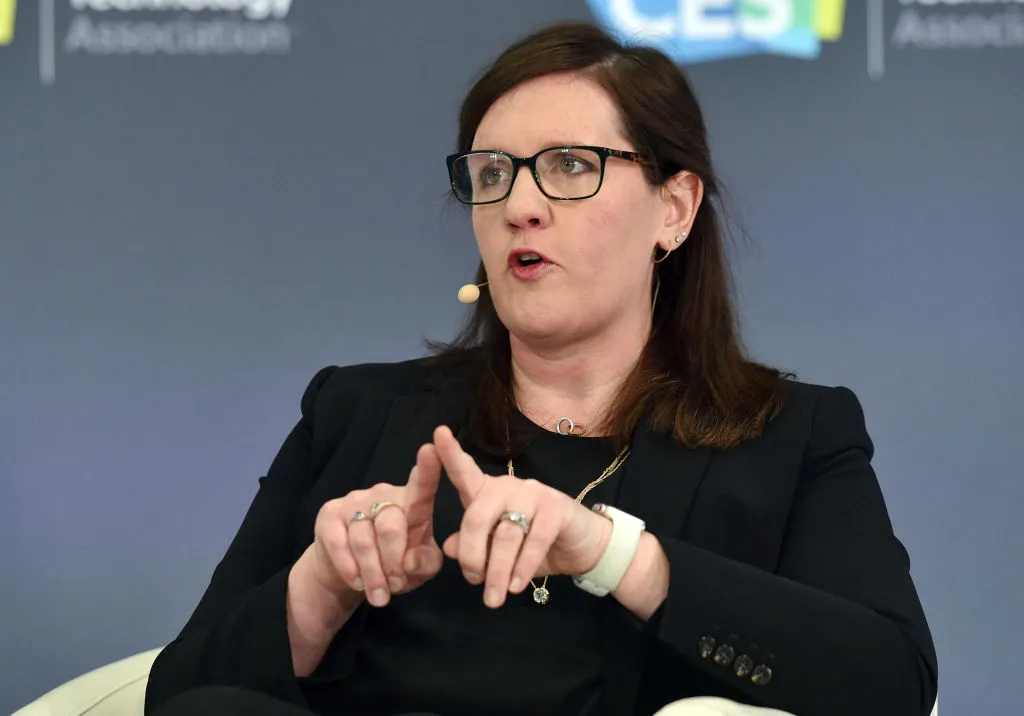
On tap: An executive power showdown
President Donald Trump’s firing of Democratic leaders at independent federal agencies touched off a wave of litigation from plaintiffs seeking to retain their positions.
In the employment law sphere alone, Trump fired two members of the U.S. Equal Employment Commission, Jocelyn Samuels and Charlotte Burrows, as well as Gwynne Wilcox, a member of the National Labor Relations Board. The firings left both agencies with a quorum, rendering them unable to perform certain key regulatory functions.
Lawsuits challenging the firings meandered through the legal system with mixed results for the officials in question. The cases center on the Supreme Court’s precedent established in Humphrey’s Executor v. U.S., a 1935 decision in which it held that members of quasi-legislative or quasi-judicial bodies created by Congress may not be removed except for cause.
Wilcox asked SCOTUS last month to decide the Humphrey’s Executor question by taking up her case alongside that of another fired official, Rebecca Slaughter of the Federal Trade Commission. The court declined to grant Wilcox’s petition but did grant Slaughter’s.
In Slaughter, the court will decide whether Humphrey’s Executor should be overruled and whether a federal court may prevent the removal of officials from public office. At press time, oral argument in the case had not been scheduled.
The case is a key one for EEOC and NLRB, Kaitlyn Grajek, partner at Stradley Ronon, said in an email to HR Dive. Should the court decide to uphold Slaughter’s termination, the president could seemingly command significant influence over agency policies by hiring like-minded officials while dismissing others, Grajek noted.
“The impact on employers who must abide by agency policies would be significant,” Grajek said. “This increased politicization of workplace regulations could place employers in a difficult position as uncertainty and deregulation tend to lead to an uptick in employee claims.”
Separately, the court also said it would intervene in the case of Federal Reserve Board Gov. Lisa Cook, whom Trump attempted to fire for cause. Trump attempted to stay a district court’s decision reinstating Cook, but the high court refused to do so pending oral argument in January 2026.
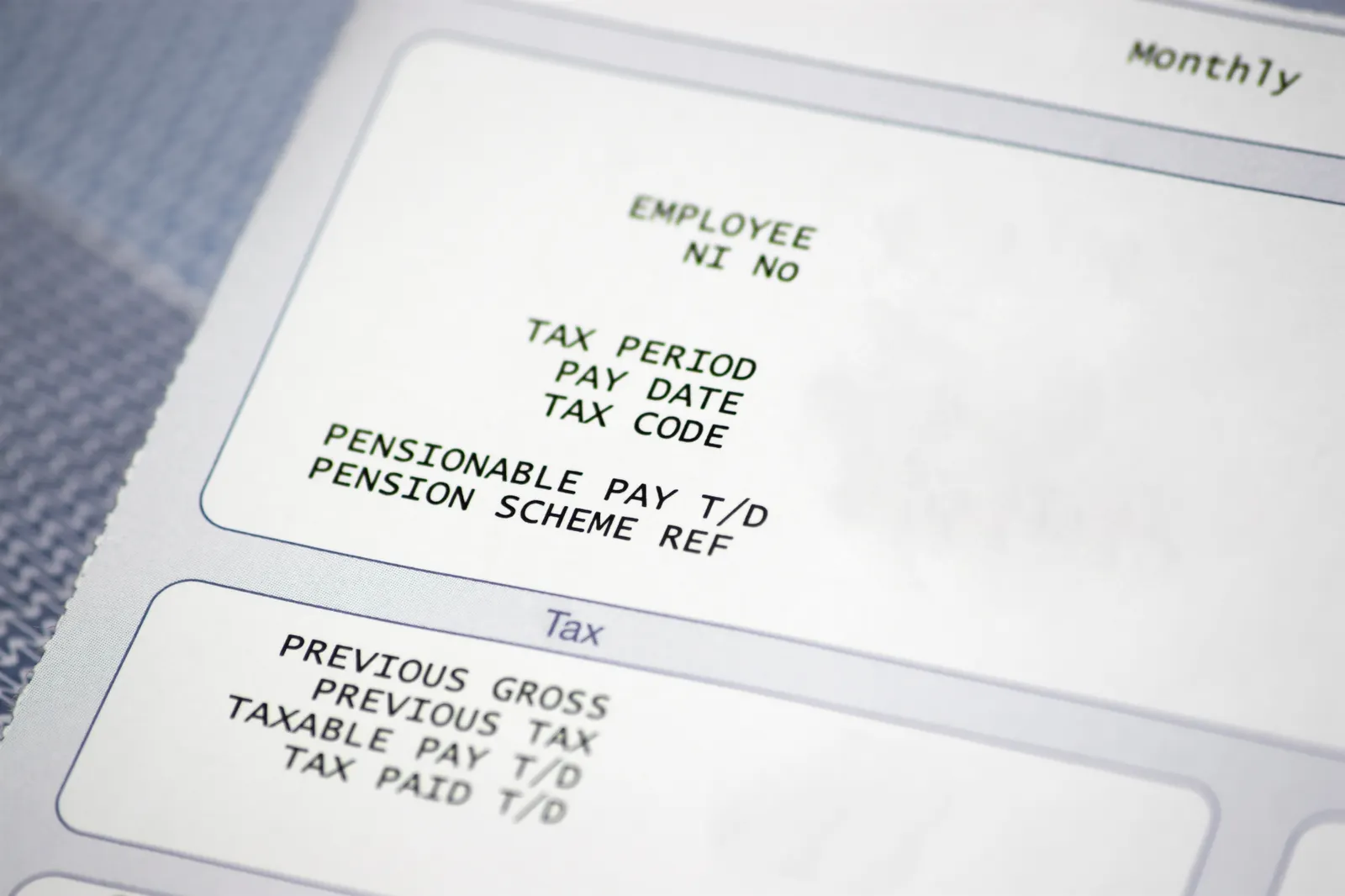
On tap: A niche retirement plan dispute
Multiemployer pension plans are arrangements in which several employers contribute money to a single trust fund for the purpose of funding workers’ retirement pensions.
Employers that withdraw from multiemployer plans may need to pay a withdrawal liability under certain conditions. The amount of the liability is calculated by an actuary, who projects the plan’s future payments to pensioners. The Employee Retirement Income Security Act specifies that actuaries must calculate the payment amount using a set formula, of which a component is the value of the plan’s liabilities minus the current value of its assets “as of the end of the plan year” prior to the plan year during which the employer withdraws.
The Supreme Court took up the case, M & K Employee Solutions, LLC v. Trustees of the IAM National Pension Fund, to decide whether the calculation of withdrawal liability must be based on actuarial assumptions “most recently adopted before the end of the plan year,” or whether ERISA permits the use of assumptions “adopted after, but based upon information available as of, the end of the plan year.” Oral argument has not yet been scheduled.
The outcome of M & K Employee Solutions puts promised pension benefits at stake, attorneys for AARP wrote in a September analysis. “Employees, including many older adults, could lose out on millions of dollars of hard-earned pension benefits should the Supreme Court rule in favor of M&K,” the attorneys said.
By contrast, a ruling in favor of the respondents may result in employers being “forced to rely on uncertain cost estimates when determining whether withdrawal from a multiemployer pension plan is an appropriate business decision,” Grajek said.
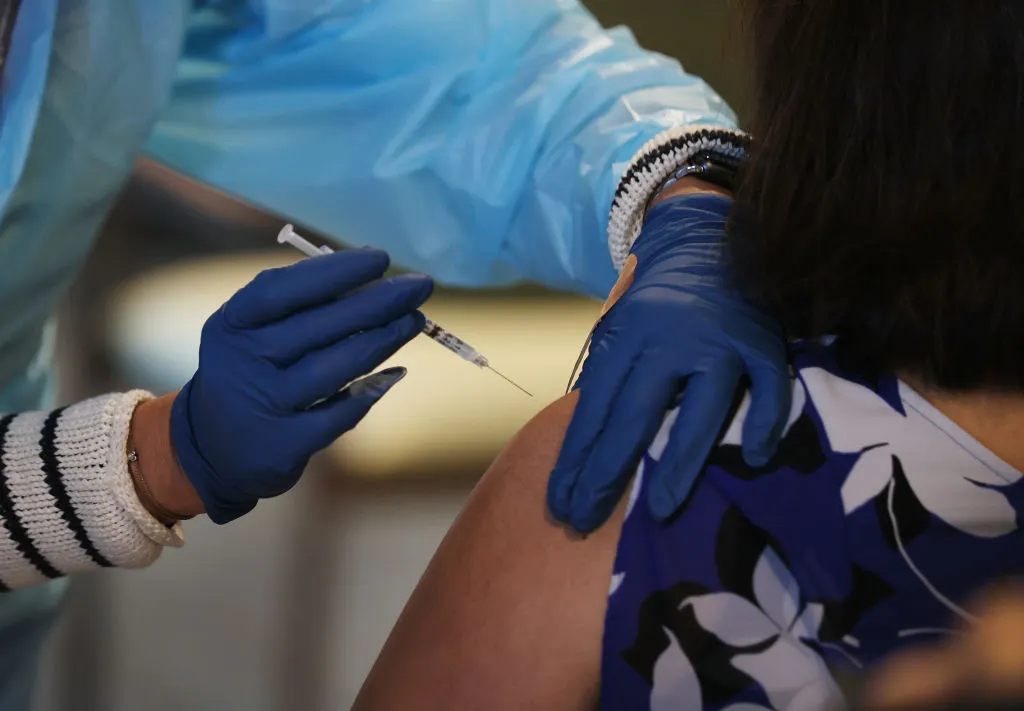
Justices may take up cases on arbitration agreements, religious accommodation
At least four petitions for writ of certiorari in cases involving employment law matters have been presented for SCOTUS’ consideration this term.
An arbitration case potentially before the court, Flowers Foods, Inc. v. Brock, is a follow-up to its unanimous 2024 decision in Bissonnette v. LePage Bakeries. In Bissonnette, it held that truck drivers delivering baked goods for Flowers Foods qualified for the Federal Arbitration Act’s exemption of transportation workers engaged in foreign or interstate commerce from contractual agreements that compel arbitration, even if the workers themselves did not work in the transportation industry.
Flowers Foods returned to the court in March, asking it to next decide whether a driver who locally delivers goods that travel in interstate commerce — but who does not transport said goods across borders nor interact with vehicles that do so — is engaged in interstate commerce and thereby exempt under the FAA.
A second case, Does 1-2 v. Hochul, concerns Title VII of the Civil Rights Act’s requirement that employers accommodate employees’ sincerely-held religious beliefs. In Hochul, healthcare workers who were terminated for refusing to comply with COVID-19 vaccine mandates due to their religious beliefs sued their employers as well as New York state. New York issued regulations requiring covered healthcare facilities to be fully vaccinated against COVID-19 but did not include a religious exemption to this requirement.
Petitioners in Hochul asked the high court to decide whether noncompliance with state laws “directly contrary” to Title VII’s religious accommodation requirement may serve as an undue hardship. A second question asked whether a state law requiring employers to “deny without any consideration” any employee’s request for a religious accommodation is contrary to Title VII and is preempted by both Title VII and the Constitution.
“Employers should take note of this anticipated ruling to ensure compliance with state and federal employment laws that appear to conflict, especially when antidiscrimination protections are implicated,” Grajek said of Hochul.
The high court has also been asked to weigh in on a disability discrimination dispute in Cook County, Ill. v. Nawara. There, an employee alleged he was required to submit to a medical examination and other similar inquiries that were not job-related nor consistent with business necessity, as required by the Americans with Disabilities Act. The plaintiff did not have a disability and was not regarded as disabled. Should it take the case, SCOTUS could decide whether the ADA protects nondisabled individuals like the plaintiff.
Lastly, Parker-Hannifin Corp. v. Johnson is an ERISA matter involving plaintiffs who alleged imprudent-investment claims. The petitioners asked SCOTUS to decide whether such plaintiffs must show that the performance benchmark against which they evaluate an investment’s returns is a sound basis of comparison for the investment.
While SCOTUS has not yet taken up the case, it did invite U.S. Solicitor General D. John Sauer to file a brief expressing the government’s view.



